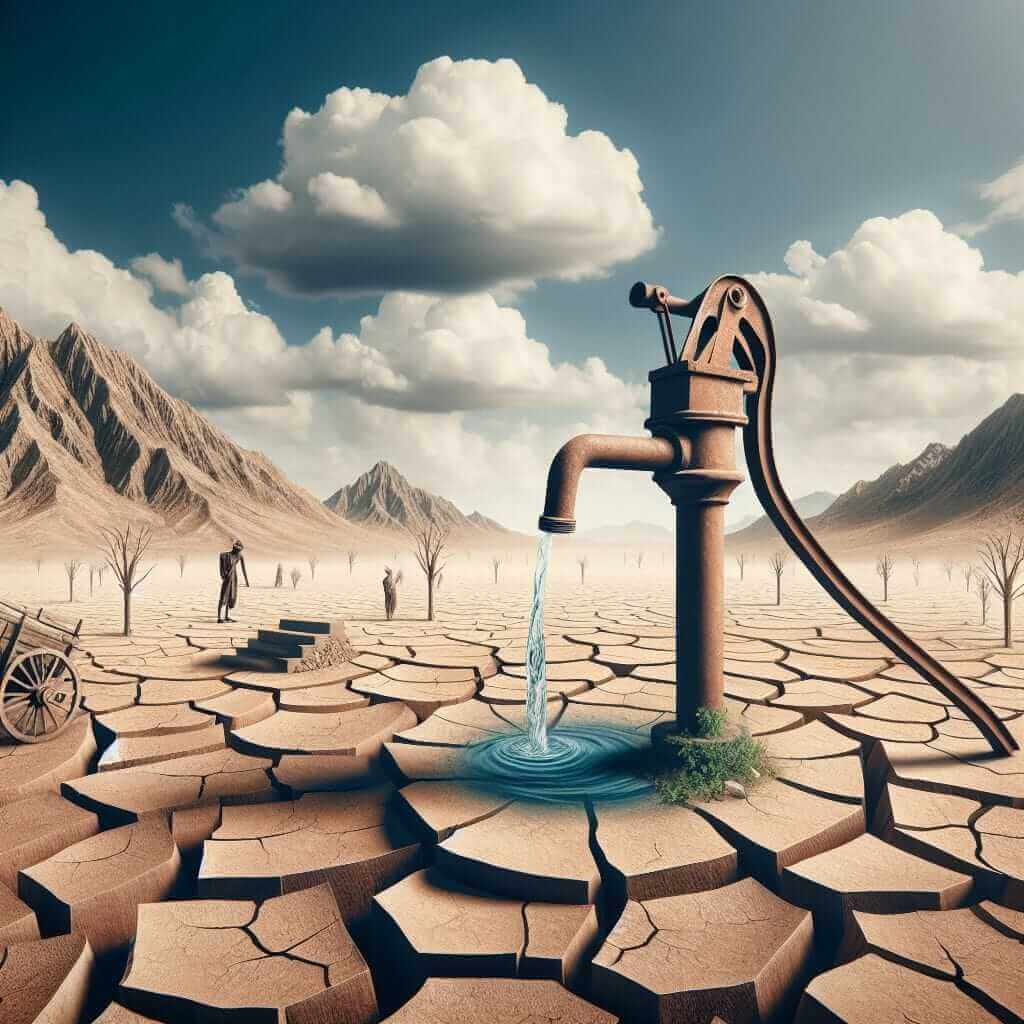“The importance of access to clean water in developing countries” is a topic frequently addressed in IELTS Writing Task 2. This issue intersects with various social, economic, and health aspects, making it a recurring theme in the exam.
Here are some potential IELTS Writing Task 2 questions related to this topic:
- Many developing countries lack access to clean water. What are the main causes of this problem, and what measures can be taken to address it?
- Some people argue that governments should provide clean water to all citizens at no cost, while others believe individuals should pay for their water usage. Discuss both views and give your opinion.
- Access to clean water is often seen as a human right. To what extent do you agree or disagree with this statement?
Sample Essay: Addressing Water Scarcity in Developing Nations
Let’s delve into a model essay addressing the first question:
Analyzing the Question
This question requires a two-part answer:
- Identifying the causes of poor access to clean water in developing countries.
- Proposing solutions to tackle this challenge.
Model Essay
Many developing countries lack access to clean water. What are the main causes of this problem, and what measures can be taken to address it?
The scarcity of clean water in many developing nations poses a significant threat to human health, economic progress, and overall well-being. While several factors contribute to this pressing issue, a lack of infrastructure investment, coupled with inadequate sanitation practices, stand out as primary causes. However, through strategic government intervention, community engagement, and innovative technologies, this challenge can be effectively mitigated.
One of the most significant barriers to clean water access is the lack of adequate infrastructure. Many developing countries struggle with outdated or non-existent water treatment plants, leaky pipelines, and insufficient water storage facilities. This inadequacy often stems from limited financial resources, political instability, or a lack of prioritization for water infrastructure projects. As a result, existing water sources are often contaminated, leading to a scarcity of safe drinking water for large populations.
Furthermore, poor sanitation practices exacerbate the problem. Open defecation, improper waste disposal, and inadequate hygiene contribute significantly to water contamination, particularly in densely populated areas. Without proper sanitation facilities and education on hygienic practices, waterborne diseases like cholera and typhoid fever run rampant, further straining the already limited clean water supply.
Addressing this crisis demands a multi-faceted approach. Governments must prioritize investment in water infrastructure, including the construction of modern treatment plants, the rehabilitation of existing pipelines, and the development of sustainable water management systems. These efforts could be supported by international aid and public-private partnerships, ensuring financial resources are readily available.
Simultaneously, community-based initiatives focusing on sanitation improvement are crucial. Implementing programs that promote latrine construction, safe waste disposal techniques, and hygiene education can drastically reduce water contamination at the source. Engaging local communities in these endeavors fosters a sense of ownership and ensures the long-term sustainability of sanitation improvements.
Finally, exploring innovative technological solutions can enhance clean water access. Rainwater harvesting systems, water filtration technologies, and affordable water testing kits offer practical and cost-effective methods for providing safe drinking water, especially in remote or underserved areas.

In conclusion, the lack of clean water in developing countries is a multifaceted issue rooted in inadequate infrastructure and poor sanitation. By prioritizing government investment, fostering community engagement, and embracing innovative technologies, ensuring access to clean water for all is an achievable goal. This will not only alleviate the immediate health risks associated with contaminated water but also pave the way for a healthier, more prosperous future for these nations.
(Word Count: 375)
Writing Tips
- Structure: Employ a clear structure with an introduction, body paragraphs, and a conclusion.
- Vocabulary: Use topic-specific vocabulary such as “water scarcity,” “sanitation,” “infrastructure,” and “waterborne diseases.”
- Grammar: Maintain grammatical accuracy, particularly in using complex sentences and cohesive devices.
- Examples: Provide relevant examples to support your claims.
Useful Vocabulary
- Water scarcity (n.) /ˈwɔːtər ˈskersəti/: A lack of sufficient available water resources to meet the water needs within a region.
- Sanitation (n.) /ˌsænɪˈteɪʃən/: Conditions relating to public health, especially the provision of clean drinking water and adequate sewage disposal.
- Infrastructure (n.) /ˈɪnfrəstrʌktʃər/: The basic physical and organizational structures and facilities (e.g., buildings, roads, and power supplies) needed for the operation of a society or enterprise.
- Waterborne diseases (n.) /ˈwɔːtərbɔːrn dɪˈziːziz/: Illnesses caused by pathogenic microorganisms that are transmitted in contaminated water.
- Contamination (n.) /kənˌtæmɪˈneɪʃən/: The process of making something impure by exposure to or addition of a poisonous or polluting substance.
Conclusion
Mastering the IELTS Writing Task 2 requires a strong understanding of relevant topics, a clear writing style, and a robust vocabulary. By practicing regularly and utilizing resources like this guide, you can confidently approach this section of the IELTS exam.
Explore other related topics like the importance of education in reducing poverty, the spread of communicable diseases, and the impact of parasitic infections to further enhance your preparation.